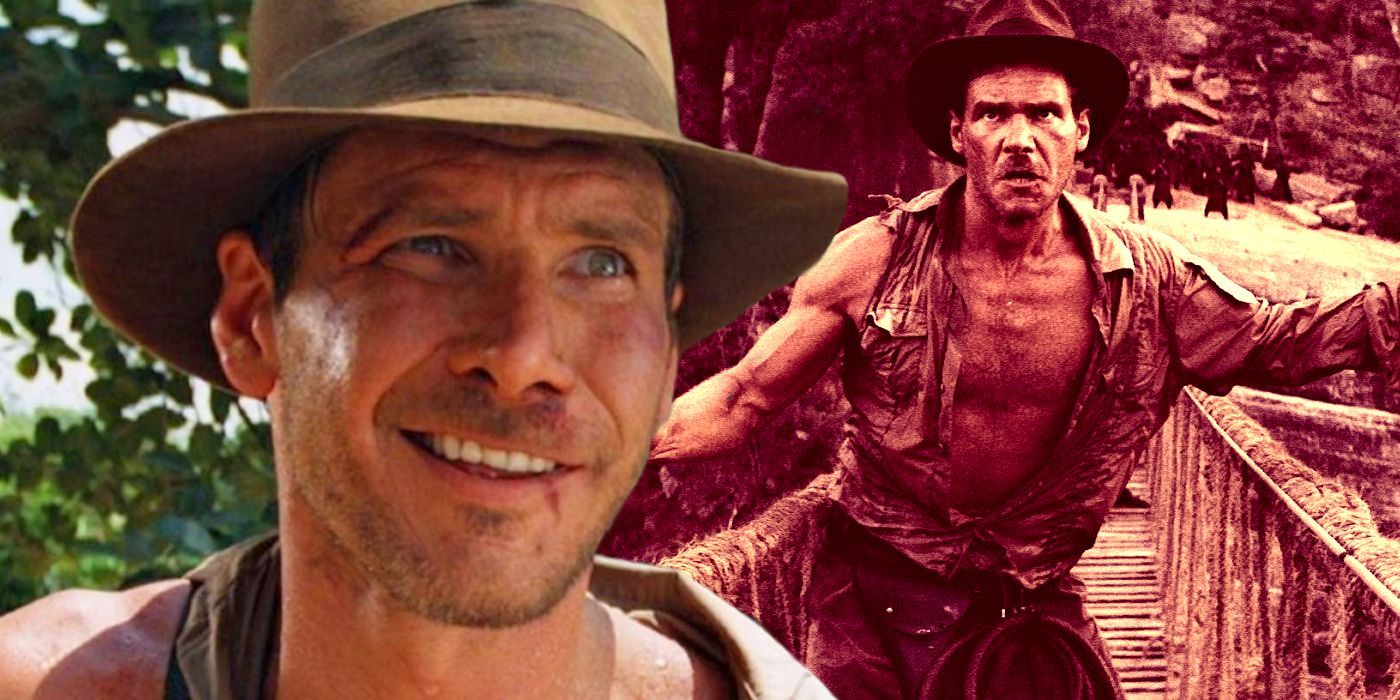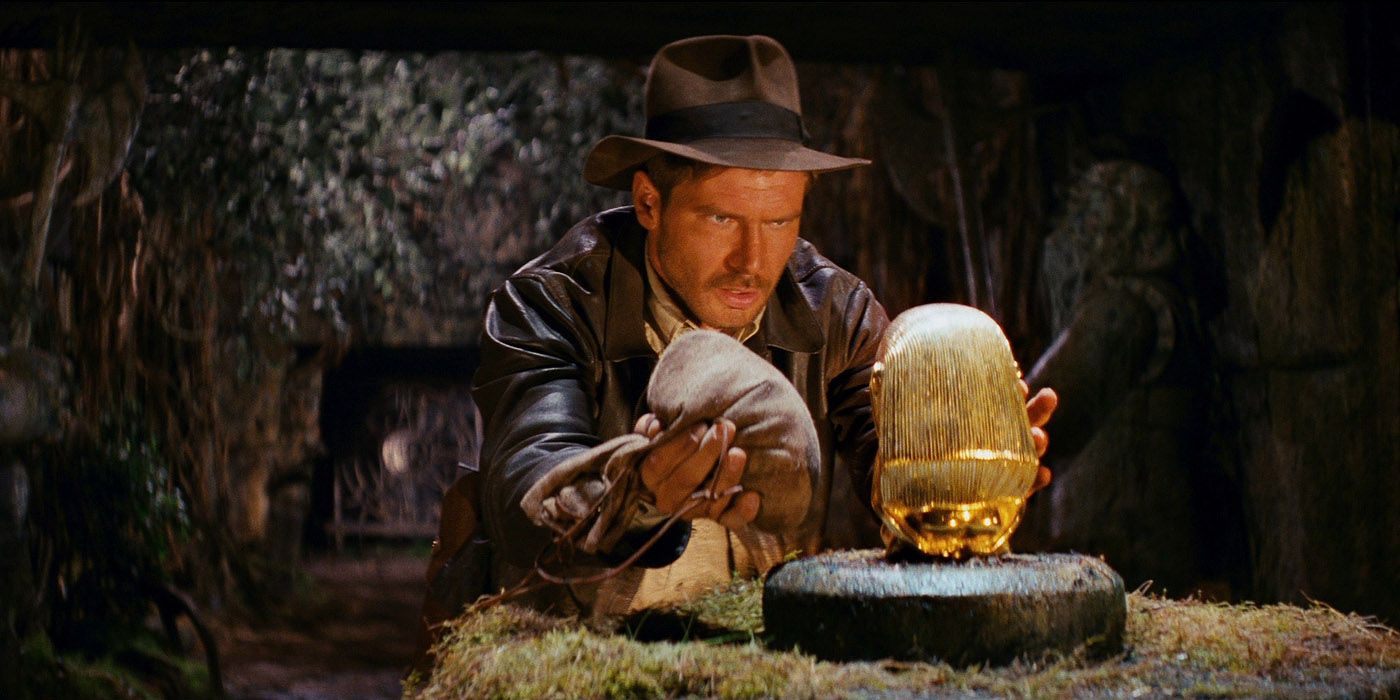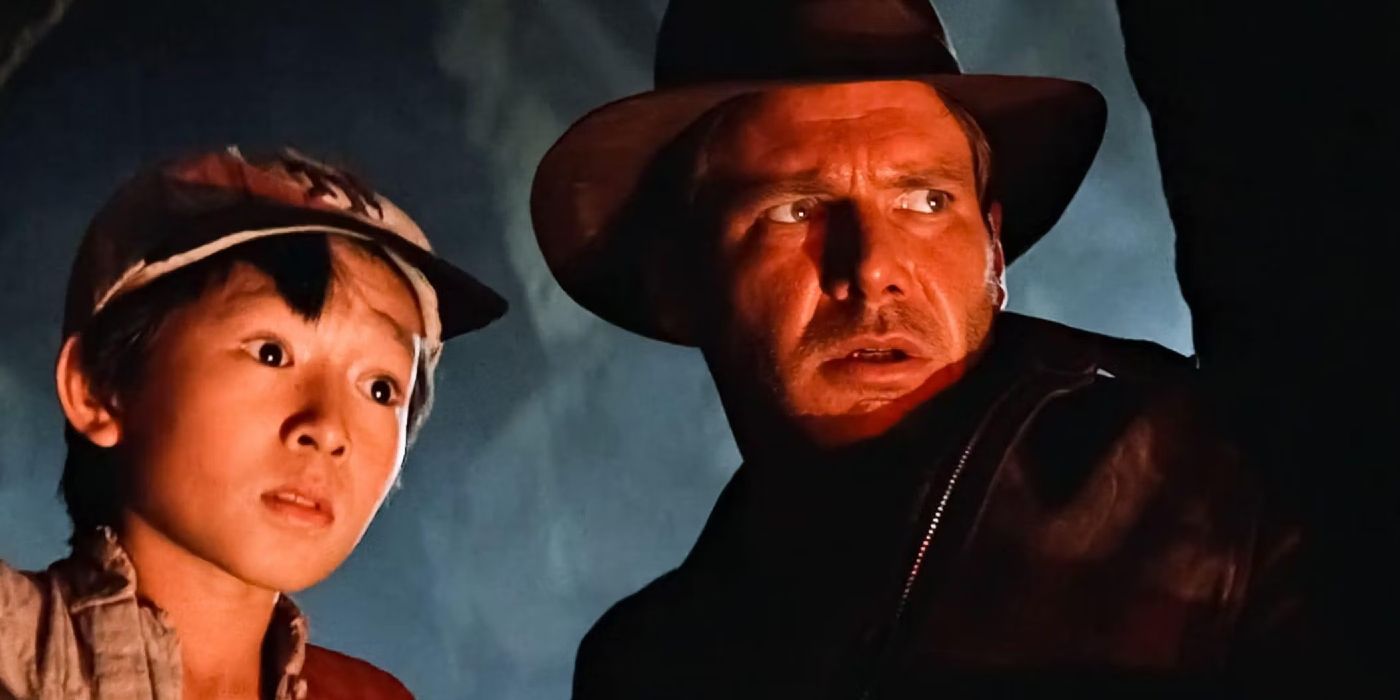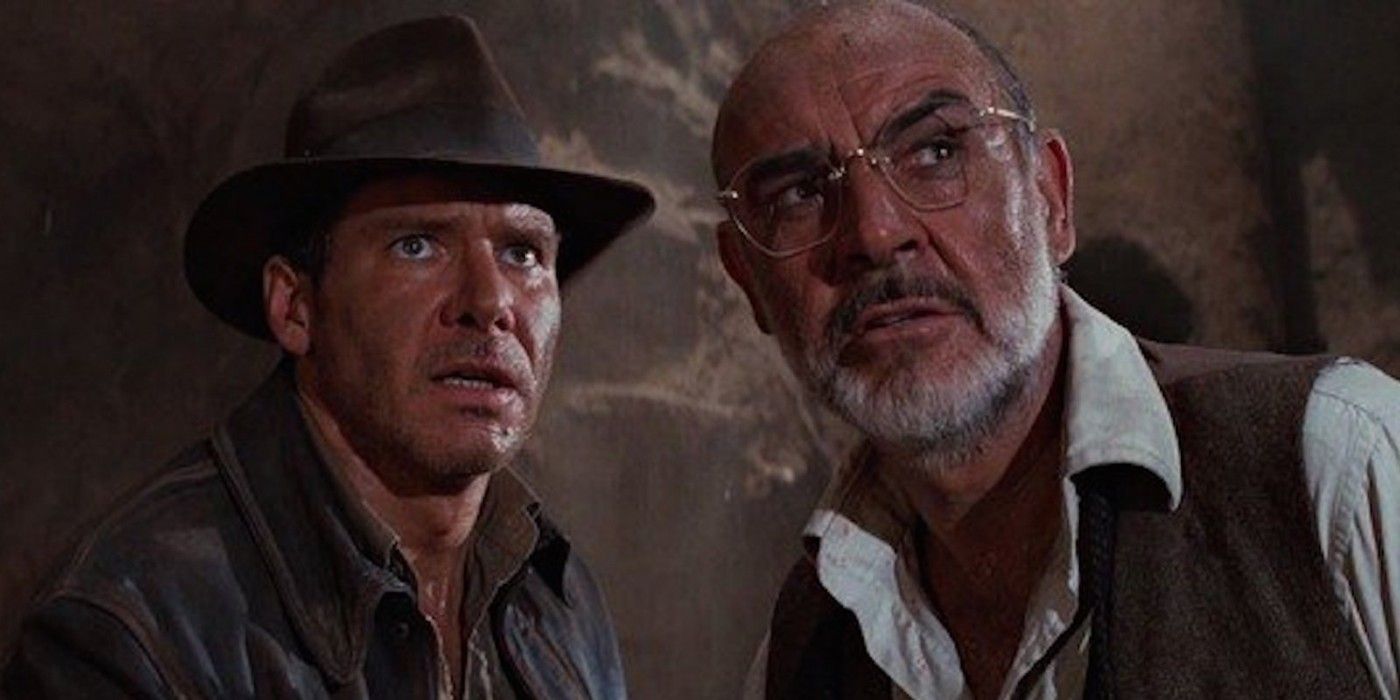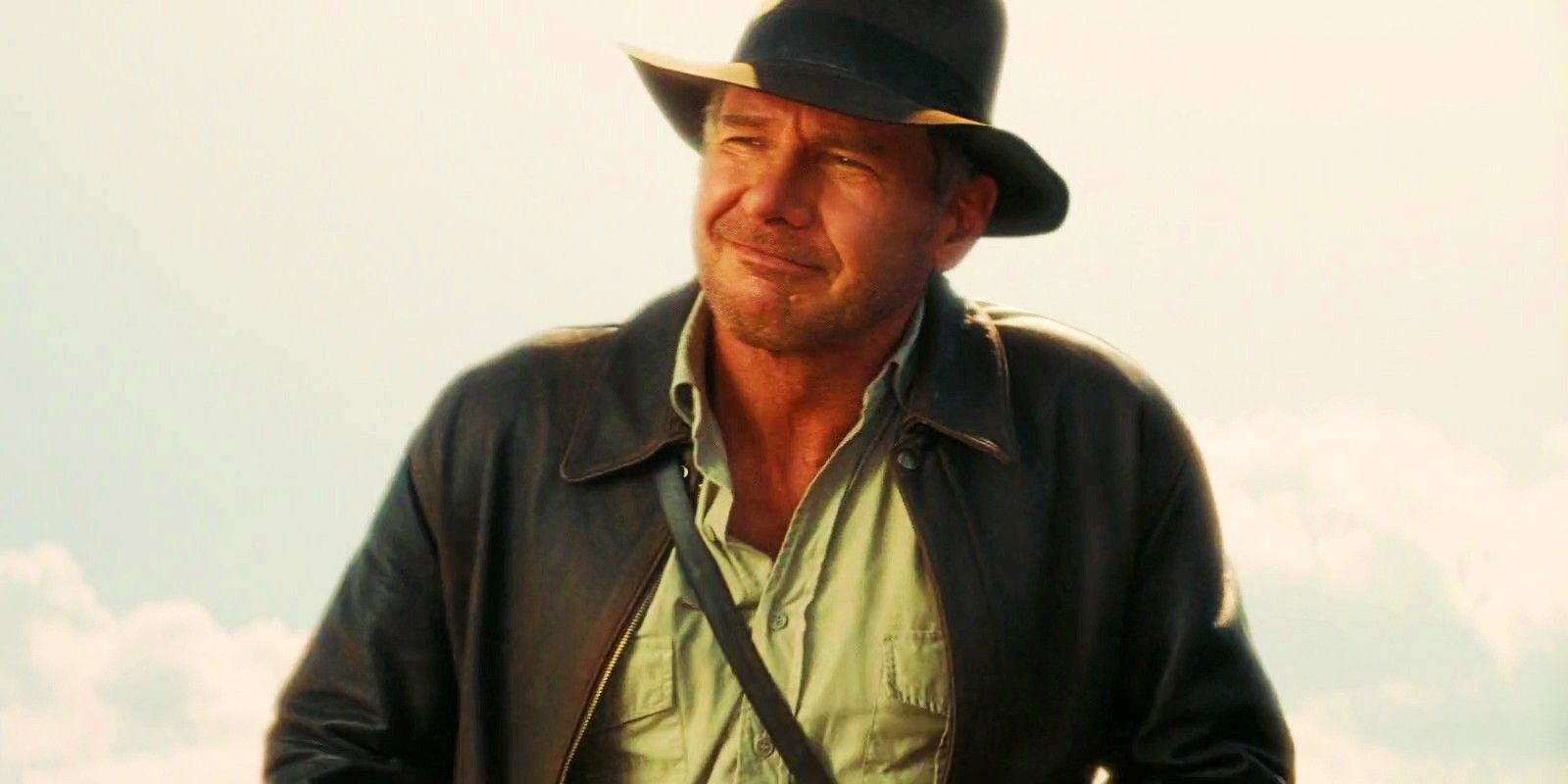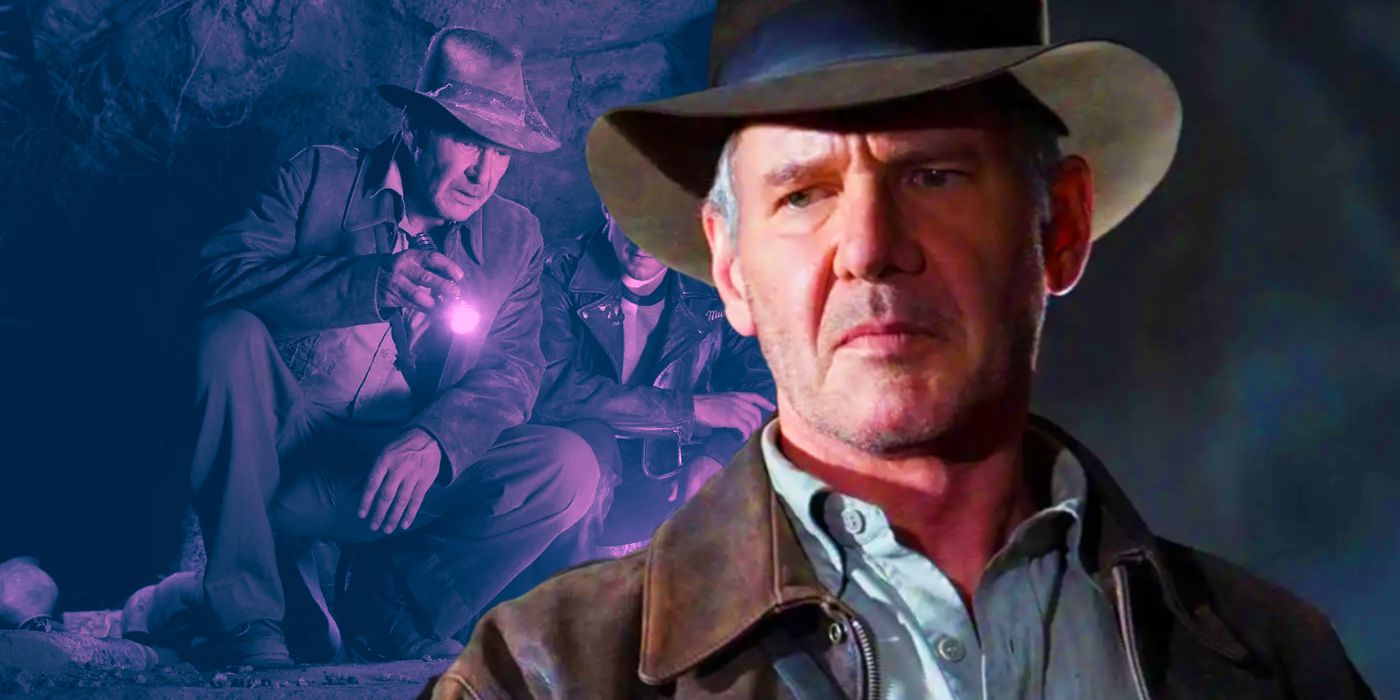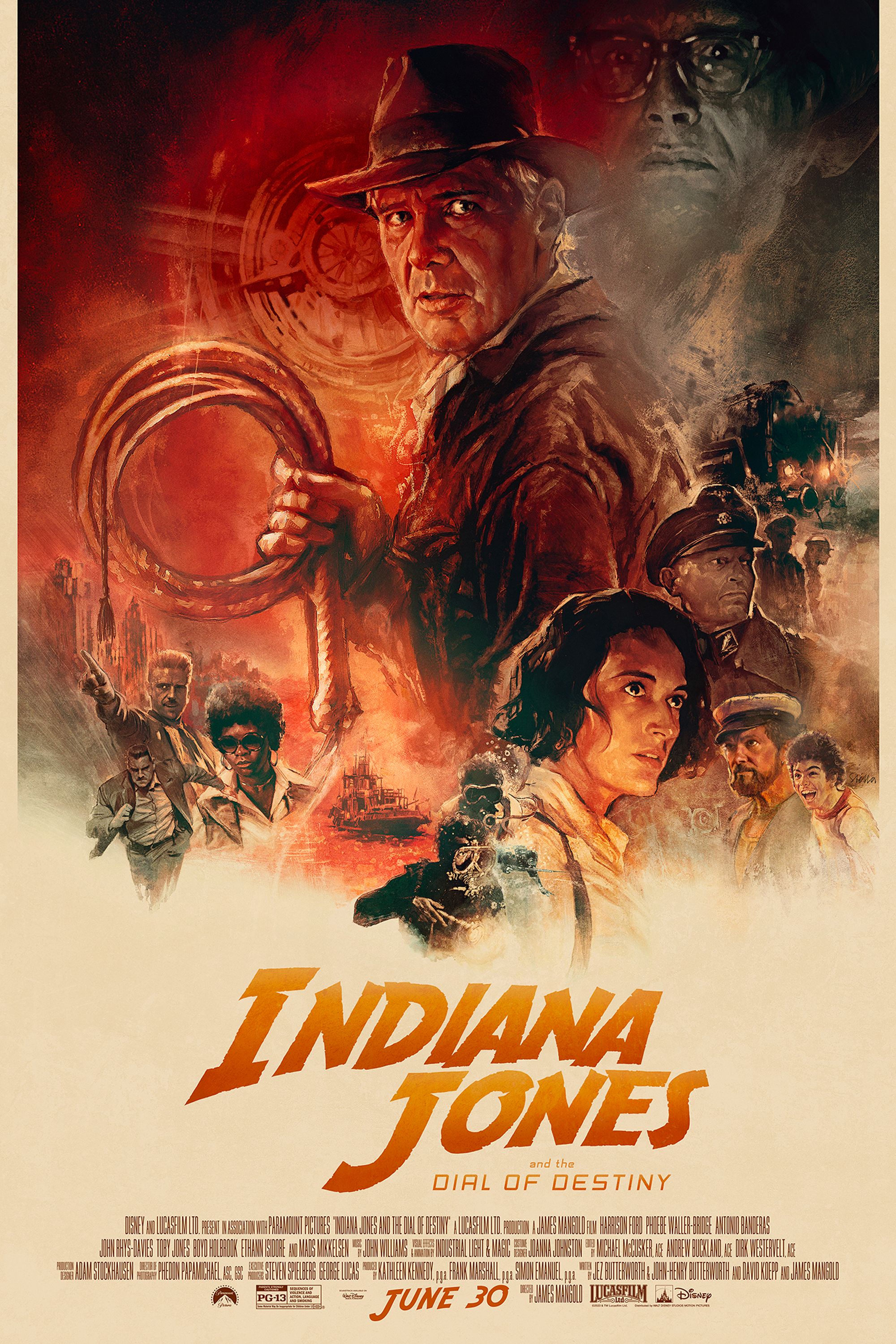Though the character has long since become one of cinema's most iconic adventurers, the Indiana Jones franchise repeatedly proves that its titular protagonist isn't a hero at all. Cinema's most recognizable adventurer is a pop culture icon, thanks to his cinematic outings in which he discovers (and subsequently loses) various incredible artifacts of historical significance. The adventures of Indiana Jones are legendary and have elevated the character to near-mythic status: despite being a fictional character, his fedora and bullwhip have essentially become synonymous with on-screen archeology.
The cinematic escapades of Indiana Jones began with Raiders of the Lost Ark in 1981, followed by the prequel Indiana Jones and the Temple of Doom in 1984. Jones' next outing came five years later in 1989's Indiana Jones and the Last Crusade - a film which also introduced Henry Jones, Sr., Indiana's father. After a 19-year gap, Harrison Ford returned to the iconic role for the maligned sequel Indiana Jones and the Kingdom of the Crystal Skull. Ford is set to reprise the role for Indiana Jones 5, a film that's tipped to be the actor's last turn in the fedora (and potentially the last in the franchise).
Despite the character's exploits making him one of cinema's most beloved protagonists, there is actually evidence to suggest that Indiana Jones may not be the hero he seems. Though Indiana Jones changes between movies, one thing that seems consistent about the character is that he simply isn't overly heroic. In fact, his actions are often selfish, and he rarely acts to serve the greater good - most of his adventures are fueled by ambition or some other selfish emotion, and he shows little inclination to actually share his discovered knowledge with the wider world. Each movie in the Indiana Jones franchise further proves exactly why the eponymous adventurer shouldn't be considered a hero, and it makes for a particularly interesting character arc.
Raiders Of The Lost Ark Sees Indy Protect The Status Quo
As one of the most beloved movies ever made, Raiders of the Lost Ark has been subjected to much scrutiny over the years. Common criticisms of Raiders of the Lost Ark are that Jones did nothing to actively affect the plot, and alternatively, that he could have prevented World War II had he not attempted to intervene. However, when Indiana Jones' motivations in the film are boiled down to one simple point, it becomes clear that he only acted in order to protect the status quo - he didn't prevent the Nazis from retrieving the Ark, but he helped level the playing field.
Of course, Indiana Jones is simply doing as he's told. The start of the movie sees Indy tasked with retrieving the Ark for the US and the archeologist obliges (if only to satisfy his own curiosity and prevent the Nazis from attaining a potentially powerful artifact). Raiders of the Lost Ark's ending sees the Ark recovered and hidden away by the US government, and Indy does very little about it. He willingly surrenders the Ark, which indicates that he may not be quite as invested in sharing history with the world as he claims. Even taking Jones' anger at the Ark being confiscated into consideration, he does very little to actively oppose the Nazis outside of acts of self-preservation, and he's content to act as a pawn for his own government just as the Nazi soldiers were.
Temple Of Doom Involves Child Endangerment
As a prequel, Indiana Jones and the Temple of Doom better explores the depths of Indy's character. It establishes the character as an adventurer before the events of Raiders of the Lost Ark and therefore offers added insight into Indiana Jones as a person. Temple of Doom also saw Indiana Jones create the PG-13 rating thanks to its darker and more violent nature, but that's actually a big part of how the film proves Indy isn't the hero he's considered to be.
Alongside Indy, Temple of Doom follows sidekicks Short Round and Willie, who find themselves caught up in his adventure. This is actually the result of Indiana Jones' lack of responsibility: he takes Short Round on an international trip and then brings him along while investigating a child-stealing cult. Jones' actions in Temple of Doom show that he has little regard for Short Round's safety, as he repeatedly allows the boy to get himself into increasingly dangerous situations. It's not just Short Round that is treated badly by Indiana Jones though - Willie Scott is also repeatedly objectified and berated by the archeologist, who later grabs and kisses her without her consent. The problems with Indiana Jones' treatment of his sidekicks in Temple of Doom are all too obvious, and they further prove that he's far less heroic than he seems.
The Last Crusade Shows Indiana Jones' Selfish Side
Though Indiana Jones and the Last Crusade is perhaps the least problematic of the franchise, Indiana Jones is still somewhat unpleasant to those around him over the course of its story. Indy gets drawn into the hunt for the Holy Grail after learning that his father has gone missing in his own search, and much of The Last Crusade's story is driven by Indiana Jones trying to save his father. However, as Henry Jones, Sr. points out in the movie itself, Indy's actions are foolish, and that's primarily because they're driven by his own selfish need to prove himself to his father.
Of course, as a motivation, that doesn't make Indiana Jones a bad person. However, in allowing himself to be manipulated, Indiana Jones works with the villains - in this instance, Nazis searching for the Holy Grail - bringing them dangerously close to harnessing the power of immortality. It's also worth noting that Indy only wanted to save his father to prove himself, so essentially, he risked the fate of the entire world on his own pride.
Kingdom Of The Crystal Skull Combines Indy's Worst Traits
Widely considered the worst entry into the franchise, Indiana Jones and the Crystal Skull introduced a number of new elements into the Indiana Jones movies. It also revisited all of Indiana Jones' worst character traits, and it essentially combined all of his shortcomings from previous movies into one single story. While Kingdom of the Crystal Skull's problems are many, the fourth film does serve as good evidence for the idea that Indiana Jones isn't actually a hero at all, because he's actually distinctly unpleasant throughout.
First off, Indiana Jones learns of the existence of his son, then spends most of the film treating him poorly (not unlike his own father did to him). It's also worth mentioning that the mother of Indy's child is Marion Ravenwood - a woman that only began a romantic affair with Jones while she was young and impressionable and he was her teacher. This makes the entire backstory of Shia LaBeouf's Mutt Williams proof of Indiana Jones' murky morals. He also seems unperturbed by endangering the life of his own son, which makes Indiana Jones appear even less heroic than he did previously.
Why Indiana Jones 5 Should Address Indy's Nature
As Indiana Jones 5 may end the franchise, it's critical that it handles its central character properly, and that means addressing his behavior. Despite having been presented as a hero, Indiana Jones should actually be considered morally gray at best, and that's something that Indiana Jones 5 could explore within its story. Having Indy confront the fact that other people don't see him as a hero would not only see the character attain a little self-awareness, but would serve as the perfect way to round out his overall arc.
Closing out the franchise (or at least Harrison Ford's tenure in the main role) by examining Indiana Jones' character from a different perspective could provide some valuable insight into not just the franchise's protagonist, but the stories of previous movies too. Having the character confront his own shortcomings would help Indiana Jones 5 be an emotional and meaningful way of ending his story, and it would also allow for his final outing to provide some form of vindication. As he has so far spent his exploits in the Indiana Jones franchise being far less heroic than he gets credit for, his final outing flipping this idea would be a good way of ending his story.

